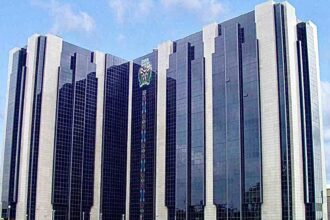The naira struggled through the week as it lost value both at the official and parallel markets. By Friday, it closed at 1,456.72 per dollar at the official Nigerian Foreign Exchange Market, weakening from 1,442.43 the previous week. On the streets, it traded between 1,470 and 1,475 to the dollar, reflecting continued pressure on the currency.
Cowry Assets Management Limited reported that the naira moved within a wider band than usual, shifting between 1,440 and 1,460 at the official window as softer dollar inflows clashed with stronger demand. By the end of trading, it had slipped by 0.98 per cent to 1,456.72 per dollar. The parallel market showed a similar pattern, with the naira dipping by 0.20 per cent to 1,475 per dollar.
AIICO Capital observed the same bearish performance, noting that investors rushed early in the week to cover positions, adding more pressure on the naira. The firm explained that demand stayed high throughout the week despite several Central Bank interventions, dragging the currency from last week’s close of 1,442.43 per dollar to 1,456.72 per dollar.
Although the exchange rate faced continuous strain, Nigeria’s foreign exchange environment showed mixed signals. Demand pressure persisted, yet external reserves continued to rise steadily. By Thursday, reserves climbed to $44.19bn, up from $43.64bn recorded on November 14—a 1.26 per cent growth within days.
Cowry Assets linked this reserve increase to stable oil earnings, stronger non-oil inflows, and a consistent trade surplus. The firm explained that these factors helped the Central Bank strengthen macro-liquidity and stabilize the market despite the fluctuations in the naira.
Looking ahead, analysts expect the FX market to remain cautious. Cowry Assets predicts that trading will depend more on the pace of inflows than speculative movements. They believe that supply remains light and not driven by sentiment, which means the naira could still experience pressure if inflows fail to rise significantly. However, they agree that the steady reserve build-up and continuous CBN interventions will help control volatility even as long-standing demand and supply issues remain unresolved.
AIICO Capital remains optimistic and expects the naira to stay stable in the short term, supported by growing reserves. Afrinvest shares this view, noting that the currency is likely to trade within the same band next week because short- to medium-term fundamentals still look strong, especially with the CBN maintaining healthy reserve levels.
Afrinvest analysts also connected the naira’s recent performance to broader economic patterns. They stated that the currency’s stability—boosted in the last six months by CBN market reforms—has contributed to Nigeria’s current disinflation trend. Still, they warned that long-term FX stability will depend on how well the government manages investor sentiment, particularly concerns surrounding the controversial capital gains tax changes expected to take effect in 2026.
The firm expects the Monetary Policy Committee to take a softer stance when it meets this week. According to their projection, the combination of easing inflation, relative FX stability, and expected GDP growth between 3.8 and 4.3 per cent in the third quarter should encourage a mild rate cut. They anticipate a reduction of between 25 and 50 basis points, a move that could extend the ongoing bonds rally, though it may have little impact on the equities market.



















